Strictly Personal
Brutal deaths of Ouko, Kombe, Kiwanuka need to be explained, By Jenerali Ulimwengu
Published
1 year agoon

In a leisurely perusal of a Kenyan publication, the Daily Nation, I stumbled upon an item that caught my attention with the title, THIS DAY IN HISTORY. It dealt with a subject I was familiar with, the 1990 death, in mysterious circumstances, of Kenya’s then-foreign minister Robert Ouko.
His body was discovered by a schoolboy on his walkabout, and when the police arrived it was discovered that not only was the body badly burned but it had bullet holes.
A rumour was put out by someone (silly, obviously) suggesting the minister had committed suicide, in which case he would have shot himself and then set himself on fire, or lit the fire and then shot himself! Those who want to disinform have no boundaries.
When the death was announced it caused a sensation, but we were never been told what really happened to Ouko, a man many found smooth, debonair, and charming in the extreme.
Trip to Washington
A fortnight prior to his death he had come back to Nairobi from a Washington, where he had accompanied his boss, President Daniel arap Moi, in talks with George Bush.
The newspaper article cited above shows him descending from the airplane behind Moi. There was thus no dearth of speculation that Ouko’s death had somehow been caused by that trip.
Needless to say, stories like that send shivers down people’s spines, and many questions are asked, though as a rule the whodunnits seldom get any definite answer.
From Kenya we got used to such stories from early on after independence: Pinto Gama, Tom Mboya, Josiah Mwangi (JM) Kariuki, etc.
Conspiracy theories
What moves me this week is to ask whether there is any denouement around Ouko’s death — and the others — apart from the myriad conspiracy theories that swirled around that time and then disappeared into oblivion.
Lest Kenya is seen as an exception in this, considering that Tanzania has had its share of bizarre deaths in high places, which have remained unexplained.
In 1996, Imran Kombe, the man who had been President Benjamin Mkapa’s spy chief was gunned down in broad daylight by policemen in a maize field not far from his village of birth in Kilimanjaro, reportedly mistaken for a notorious car thief by the nickname of Mr. White.
It did not seem to matter that Kombe did not have the slightest resemblance to the said Mr. White, whose nickname was due to his very light skin complexion.
Let alone that police should not shoot suspected car thieves in cold blood.
Sentenced to death
The police officers involved in the shooting were sentenced to death, but their sentences were commuted to only two years in prison, and eventually released on a presidential pardon, at the same time as the family of the dead spy chief was given monetary compensation. End of story.
What worries me here especially is that the high-profile murders such as Ouko’s and Kombe’s are such acts shock us momentarily but, after a short while, we forget and go about our business “normally,” until another such incident rouses us from our slumber.
What exercises me is the realisation that our history does not teach us much and we would rather forget uncomfortable realities than exorcise them by affording them closure. We tend to think that we can tackle our future with any measure of confidence without worrying about what happened to us in our past, but that will never get us anywhere desirable.
Seeing as Kenya has taken great strides in governance evolution than her neighbours, I would have expected our Kenyan brothers and sisters to ask the questions needed about these prominent Kenyans who met their deaths in ways that cannot be explained.
Borrow a few leaves
I have raised the issue of a few Kenyans that I am acquainted with; I suspect there are many more I may not be aware of. As in many other issues, this would help others in the region to borrow a few leaves.
Uganda would be a treasure trove for anyone trying to dig up the graves of so many disappeared people, given the successive regimes of killers that have plagued that country. We know roughly well what happened under General Iddi Amin — still I would like to know the details of the fate of CJ Benedict Kiwanuka and Archbishop Janani Luwum — but what do we know about the other atrocities carried out by regimes other than Amin’s?
I do not hold myself to be a religious person, and there are ways in which religiosity offends intellect. But I believe that if people acted according to what their professed religions stood for, maybe this would become a much better world. Besides, our silence in the face of injustice angers our spirits, darkens our hearts, and clouds our path into the future.
As a postscript, all the three principal protagonists in the so-called Washington Fallout theory, on which speculations blamed the killing of Ouko — Moi, Nicolas Biwott, and Ouko himself — are now in the presence of our African ancestors, where appropriate and final judgment will be delivered.
Our verdicts on earth will only be temporal, and temporary.
Ulimwengu is now on YouTube via jeneralionline tv. E-mail: jenerali@gmail.com
You may like
-


This Sudan war is too senseless; time we ended it, By Tee Ngugi
-


Intel Liftoff Hackathon 2024 calls for applications from African AI startups
-
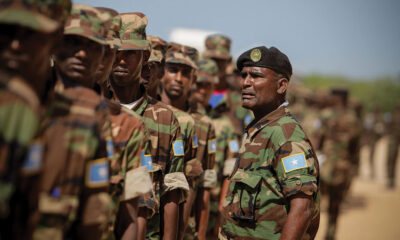

African leaders seek change in fight against terrorism at Nigerian summit
-


Africa’s largest tech hub AfriLabs welcomes 16 new additions
-
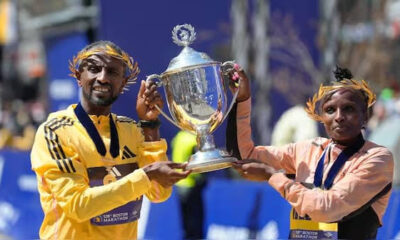

Ethiopia’s Lemma, Kenya’s Obiri give Africa double podium finish at Boston Marathon
-


Air Peace, capitalism and national interest, By Dakuku Peterside
Strictly Personal
This Sudan war is too senseless; time we ended it, By Tee Ngugi
Published
1 day agoon
April 28, 2024
Why are the Sudanese Armed Forces (SAF) and the paramilitary Rapid Support Forces (RPF) engaged in a vicious struggle? It is not that they have ideological, religious or cultural differences.
Not that people should fight because of these kinds of differences, but we live in a world where social constructions often lead to war and genocide. It is not that either side is fighting to protect democracy. Both sides were instruments of the rapacious dictatorship of Omar el-Bashir, who was overthrown in 2019.
Both are linked to the massacres in Darfur during Bashir’s rule that led to his indictment by the International Criminal Court for crimes against humanity. They both stood by as ordinary, unarmed people took to the streets and forced the removal of the Bashir regime.
None of these entities now fighting to the last Sudanese citizen has any moral authority or constitutional legitimacy to claim power. They both should have been disbanded or fundamentally reformed after the ouster of Bashir.
The SAF and the RSF are fighting to take over power and resources and continue the repression and plunder of the regime they had supported for so long. And, as you can see from news broadcasts, they are both well-versed in violence and plunder.
Since the fighting began in 2023, both sides have been accused of massacres that have left more than 30,000 people dead. Their fighting has displaced close to 10 million people. Their scramble for power has created Sudan’s worst hunger crisis in decades. Millions of refugees have fled into Chad, Ethiopia and South Sudan.
The three countries are dubious places of refuge. Chad is a poor country because of misrule. It also experiences jihadist violence. Ethiopia is still simmering with tensions after a deadly inter-ethnic war.
And South Sudan has never recovered from a deadly ethnic competition for power and resources. African refugees fleeing to countries from which refugees recently fled or continue to flee sums up Africa’s unending crisis of governance.
Africa will continue to suffer these kinds of power struggles, state failure and breakdown of constitutional order until we take strengthening and depersonalising our institutions as a life and death issue. These institutions anchor constitutional order and democratic process.
Strong independent institutions would ensure the continuity of the constitutional order after the president leaves office. As it is, presidents systematically weaken institutions by putting sycophants and incompetent morons in charge. Thus when he leaves office by way of death, ouster or retirement, there is institutional collapse leading to chaos, power struggles and violence. The African Union pretends crises such as the one in Sudan are unfortunate abnormally. However, they are systemic and predictable. Corrupt dictatorships end in chaos and violence.
Tee Ngugi is a Nairobi-based political commentator.
Strictly Personal
Air Peace, capitalism and national interest, By Dakuku Peterside
Published
2 weeks agoon
April 16, 2024
Nigerian corporate influence and that of the West continue to collide. The rationale is straightforward: whereas corporate activity in Europe and America is part of their larger local and foreign policy engagement, privately owned enterprises in Nigeria or commercial interests are not part of Nigeria’s foreign policy ecosystem, neither is there a strong culture of government support for privately owned enterprises’ expansion locally and internationally.
The relationship between Nigerian businesses and foreign policy is important to the national interest. When backing domestic Nigerian companies to compete on a worldwide scale, the government should see it as a lever to drive foreign policy, and national strategic interest, promote trade, enhance national security considerations, and minimize distortion in the domestic market as the foreign airlines were doing, boost GDP, create employment opportunities, and optimize corporate returns for the firms.
Admitted nations do not always interfere directly in their companies’ business and commercial dealings, and there are always exceptions. I can cite two areas of exception: military sales by companies because of their strategic implications and are, therefore, part of foreign and diplomatic policy and processes. The second is where the products or routes of a company have implications for foreign policy. Air Peace falls into the second category in the Lagos – London route.
Two events demonstrate an emerging trend that, if not checked, will disincentivize Nigerian firms from competing in the global marketplace. There are other notable examples, but I am using these two examples because they are very recent and ongoing, and they are typological representations of the need for Nigerian government backing and support for local companies that are playing in a very competitive international market dominated by big foreign companies whose governments are using all forms of foreign policies and diplomacy to support and sustain.
The first is Air Peace. It is the only Nigerian-owned aviation company playing globally and checkmating the dominance of foreign airlines. The most recent advance is the commencement of flights on the Lagos – London route. In Nigeria, foreign airlines are well-established and accustomed to a lack of rivalry, yet a free-market economy depends on the existence of competition. Nigeria has significantly larger airline profits per passenger than other comparable African nations. Insufficient competition has resulted in high ticket costs and poor service quality. It is precisely this jinx that Air Peace is attempting to break.
On March 30, 2024, Air Peace reciprocated the lopsided Bilateral Air Service Agreement, BASA, between Nigeria and the United Kingdom when the local airline began direct flight operations from Lagos to Gatwick Airport in London. This elicited several reactions from foreign airlines backed by their various sovereigns because of their strategic interest. A critical response is the commencement of a price war. Before the Air Peace entry, the price of international flight tickets on the Lagos-London route had soared to as much as N3.5 million for the economy ticket. However, after Air Peace introduced a return economy class ticket priced at N1.2 million, foreign carriers like British Airways, Virgin Atlantic, and Qatar Airways reduced their fares significantly to remain competitive.
In a price war, there is little the government can do. In an open-market competitive situation such as this, our government must not act in a manner that suggests it is antagonistic to foreign players and competitors. There must be an appearance of a level playing field. However, government owes Air Peace protection against foreign competitors backed by their home governments. This is in the overall interest of the Nigerian consumer of goods and services. Competition history in the airspace works where the Consumer Protection Authority in the host country is active. This is almost absent in Nigeria and it is a reason why foreign airlines have been arbitrary in pricing their tickets. Nigerian consumers are often at the mercy of these foreign firms who lack any vista of patriotism and are more inclined to protect the national interest of their governments and countries.
It would not be too much to expect Nigerian companies playing globally to benefit from the protection of the Nigerian government to limit influence peddling by foreign-owned companies. The success of Air Peace should enable a more competitive and sustainable market, allowing domestic players to grow their network and propel Nigeria to the forefront of international aviation.
The second is Proforce, a Nigerian-owned military hardware manufacturing firm active in Rwanda, Chad, Mali, Ghana, Niger, Burkina Faso, and South Sudan. Despite the growing capacity of Proforce in military hardware manufacturing, Nigeria entered two lopsided arrangements with two UAE firms to supply military equipment worth billions of dollars , respectively. Both deals are backed by the UAE government but executed by UAE firms.
These deals on a more extensive web are not unconnected with UAE’s national strategic interest. In pursuit of its strategic national interest, India is pushing Indian firms to supply military equipment to Nigeria. The Nigerian defence equipment market has seen weaker indigenous competitors driven out due to the combination of local manufacturers’ lack of competitive capacity and government patronage of Asian, European, and US firms in the defence equipment manufacturing sector. This is a misnomer and needs to be corrected.
Not only should our government be the primary customer of this firm if its products meet international standards, but it should also support and protect it from the harsh competitive realities of a challenging but strategic market directly linked to our national military procurement ecosystem. The ability to produce military hardware locally is significant to our defence strategy.
This firm and similar companies playing in this strategic defence area must be considered strategic and have a considerable place in Nigeria’s foreign policy calculations. Protecting Nigeria’s interests is the primary reason for our engagement in global diplomacy. The government must deliberately balance national interest with capacity and competence in military hardware purchases. It will not be too much to ask these foreign firms to partner with local companies so we can embed the technology transfer advantages.
Our government must create an environment that enables our local companies to compete globally and ply their trades in various countries. It should be part of the government’s overall economic, strategic growth agenda to identify areas or sectors in which Nigerian companies have a competitive advantage, especially in the sub-region and across Africa and support the companies in these sectors to advance and grow to dominate in the African region with a view to competing globally. Government support in the form of incentives such as competitive grants ,tax credit for consumers ,low-interest capital, patronage, G2G business, operational support, and diplomatic lobbying, amongst others, will alter the competitive landscape. Governments and key government agencies in the west retain the services of lobbying firms in pursuit of its strategic interest.
Nigerian firms’ competitiveness on a global scale can only be enhanced by the support of the Nigerian government. Foreign policy interests should be a key driver of Nigerian trade agreements. How does the Nigerian government support private companies to grow and compete globally? Is it intentionally mapping out growth areas and creating opportunities for Nigerian firms to maximize their potential? Is the government at the domestic level removing bottlenecks and impediments to private company growth, allowing a level playing field for these companies to compete with international companies?
Why is the government patronising foreign firms against local firms if their products are of similar value? Why are Nigerian consumers left to the hands of international companies in some sectors without the government actively supporting the growth of local firms to compete in those sectors? These questions merit honest answers. Nigerian national interest must be the driving factor for our foreign policies, which must cover the private sector, just as is the case with most developed countries. The new global capitalism is not a product of accident or chance; the government has choreographed and shaped it by using foreign policies to support and protect local firms competing globally. Nigeria must learn to do the same to build a strong economy with more jobs.
EDITOR’S PICK
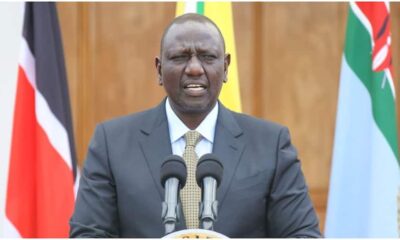

African leaders want record World Bank financing to address climate change
Ahead of a World Bank conference scheduled for later this year, African leaders on Monday called for rich countries to...
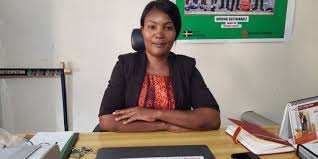

Conservationist, Kearns, names intolerance and digital media abuse as threats to media freedom
Nsama Kearns, the Executive Director of Care for Nature, speaks on the indispensable role of a free media in society....
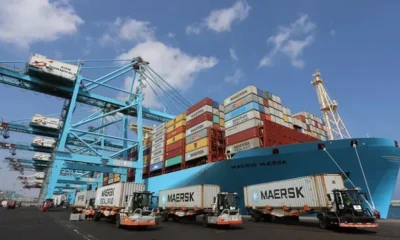

Nigeria gets $600 million investment from Danish firm Moller-Maersk
Nigeria’s presidency said on Sunday that President Bola Tinubu had secured an investment of $600 million from Danish shipping and...


Bolt Kenya teams up with M-KOPA to launch electric motorcycles
In a bid to improve driver earnings and combat climate change, ride-hailing platform, Bolt Kenya, has struck a partnership with...
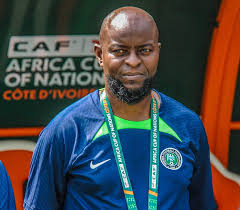

Nigeria’s football federation appoints Finidi George as Super Eagles coach
The Nigeria Football Federation (NFF) has approved the appointment of former international, Finidi George, as the new head coach of...
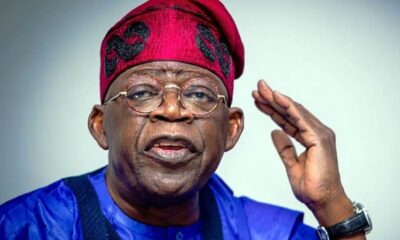

I saved Nigeria from bankruptcy by removing fuel subsidy— Tinubu
Nigerian President, Bola Tinubu, on Sunday, boasted that he saved Nigeria from going bankrupt by removing fuel subsidy on his...


Behind the News: All the backstories to our major news this week
Over the past week, there were lots of important stories from around the African continent, and we served you some...
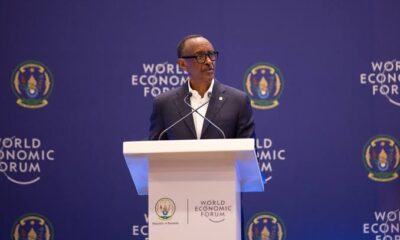

Video: How Rwanda is driving Ai revolution in Africa
In this video, the Managing Director of Rwanda’s Centre for the Fourth Industrial Revolution, Crystal Rugege, speaks on the country’s...


This Sudan war is too senseless; time we ended it, By Tee Ngugi
Why are the Sudanese Armed Forces (SAF) and the paramilitary Rapid Support Forces (RPF) engaged in a vicious struggle? It...
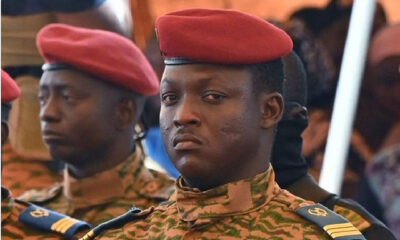

Burkina Faso investigating reports of northern killings
A government spokesman has revealed that Burkina Faso is looking into reports that 223 people were killed by the Burkinabe...
Trending
-

 Behind the News1 day ago
Behind the News1 day agoBehind the News: All the backstories to our major news this week
-

 Politics1 day ago
Politics1 day agoBurkina Faso investigating reports of northern killings
-
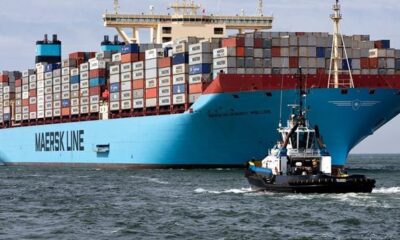
 Musings From Abroad2 days ago
Musings From Abroad2 days agoNigeria loses $9.2 billion to foreign shipowners
-

 VenturesNow1 day ago
VenturesNow1 day agoNigeria: Bureaux De Change operators to harmonise retail FX market


